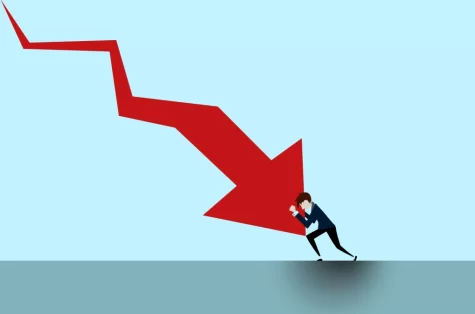The consequences of normalizing underage sex
Underage sex is becoming increasingly normalized in society. Sexual intercourse is considered underage when both people engaging in the act are under 18.
“Euphoria” a popular show that exhibits teenagers doing drugs, having sexual intercourse, going out without parental permission, toxic relationships and more. This is one example of ways underage sex is portrayed in media. Without teens having a sufficient amount of education on these topics, whether from parents, trusted adults or teachers, they have intercourse without knowing the consequences. “Euphoria” is not just a show about high schoolers doing drugs or having intercourse; it is also known for its rampant sexualization of underage children. This era of shows and movies has an unfortunate abundance of sexualization, especially of young girls.
Kids that do not have a guardian that they are comfortable with usually do not have the option of confiding in a trusted adult. They act under peer pressure, often doing things with people they are not comfortable with. This is a reason why schools and families should normalize talking about sexual intercourse, and implement more sexual education courses for students. Most parents of Gen-Z children were born and raised at a time when discussing certain sensitive topics was not as common, and even bringing them up was considered shameful. Without a safe environment to provide and receive advice on relationships, kids will lack knowledge on developing healthy relationships.
There are still teenagers who engage in intercourse at young ages despite knowing how risky it can be. According to DoSomething, an international nonprofit organization that aims to inspire and engage young people to create positive change in the world, three in ten American girls get pregnant before the age 20 at least once, resulting in around 750,000 teen pregnancies annually in the US. Teenage pregnancy is very common, and most of whom become pregnant in their teen years come from a low education and low-income background, according to the CDC. This is a hot topic, but not much has been done to prevent teen pregnancies.
Overall, talking about underage sex is stigmatized, however, the pros of discussing it outweigh the cons. It is crucial for schools to continue implementing effective safe sex education programs that inform children about the potential risks involved. Additionally, guardians should be encouraged to have open and honest discussions about sex at home. By doing so, we can not only support teenagers but also pave the way for healthier discussions about sex for future generations.












